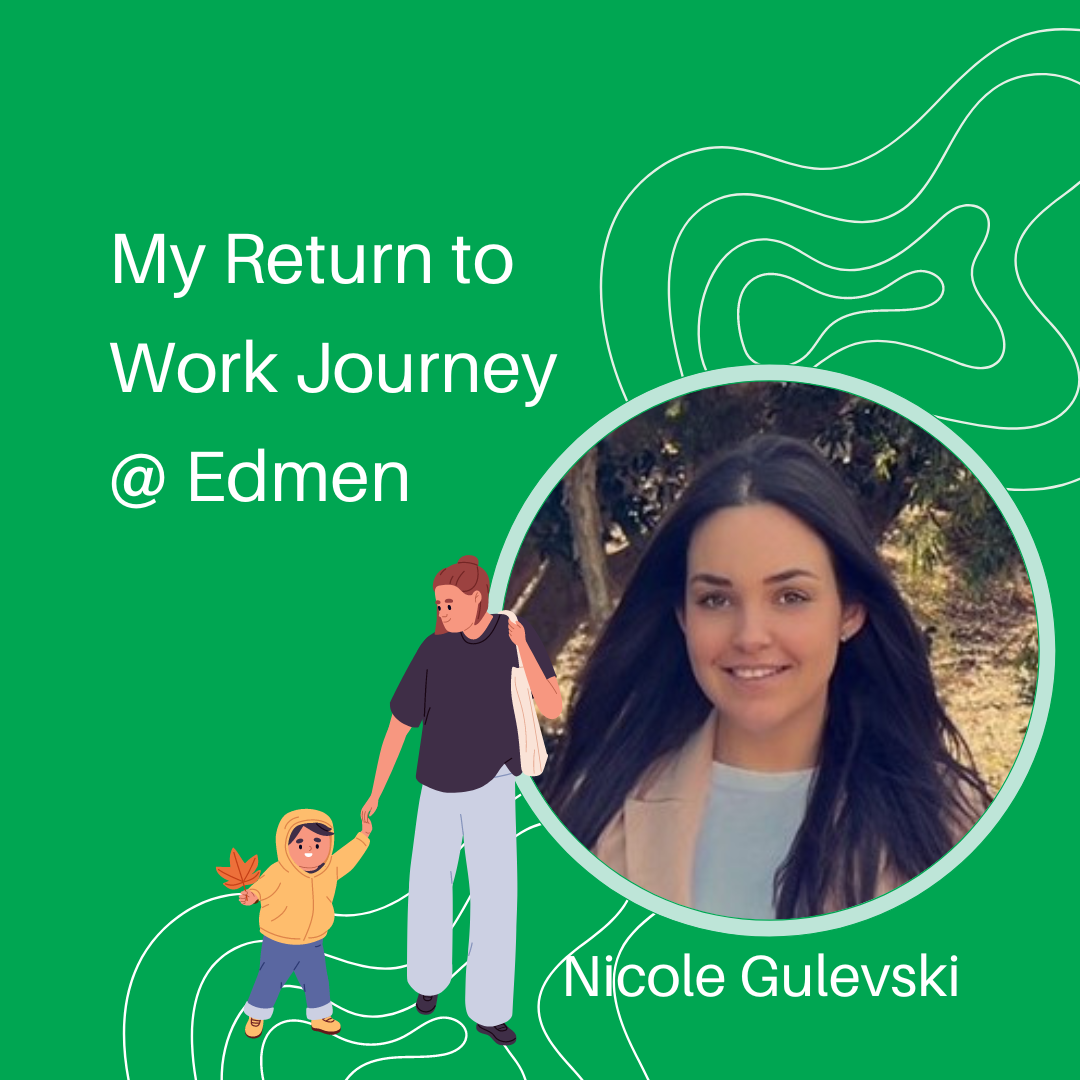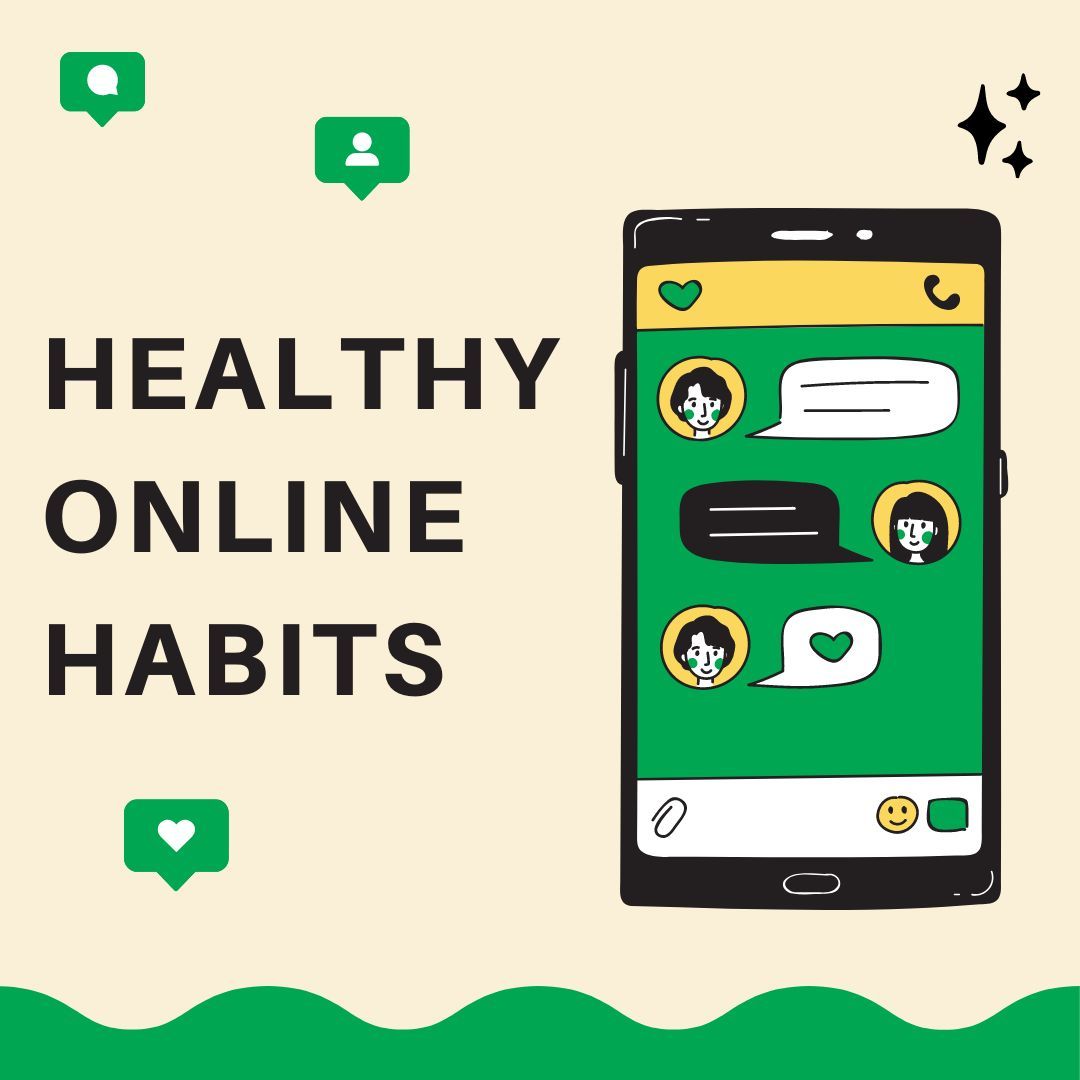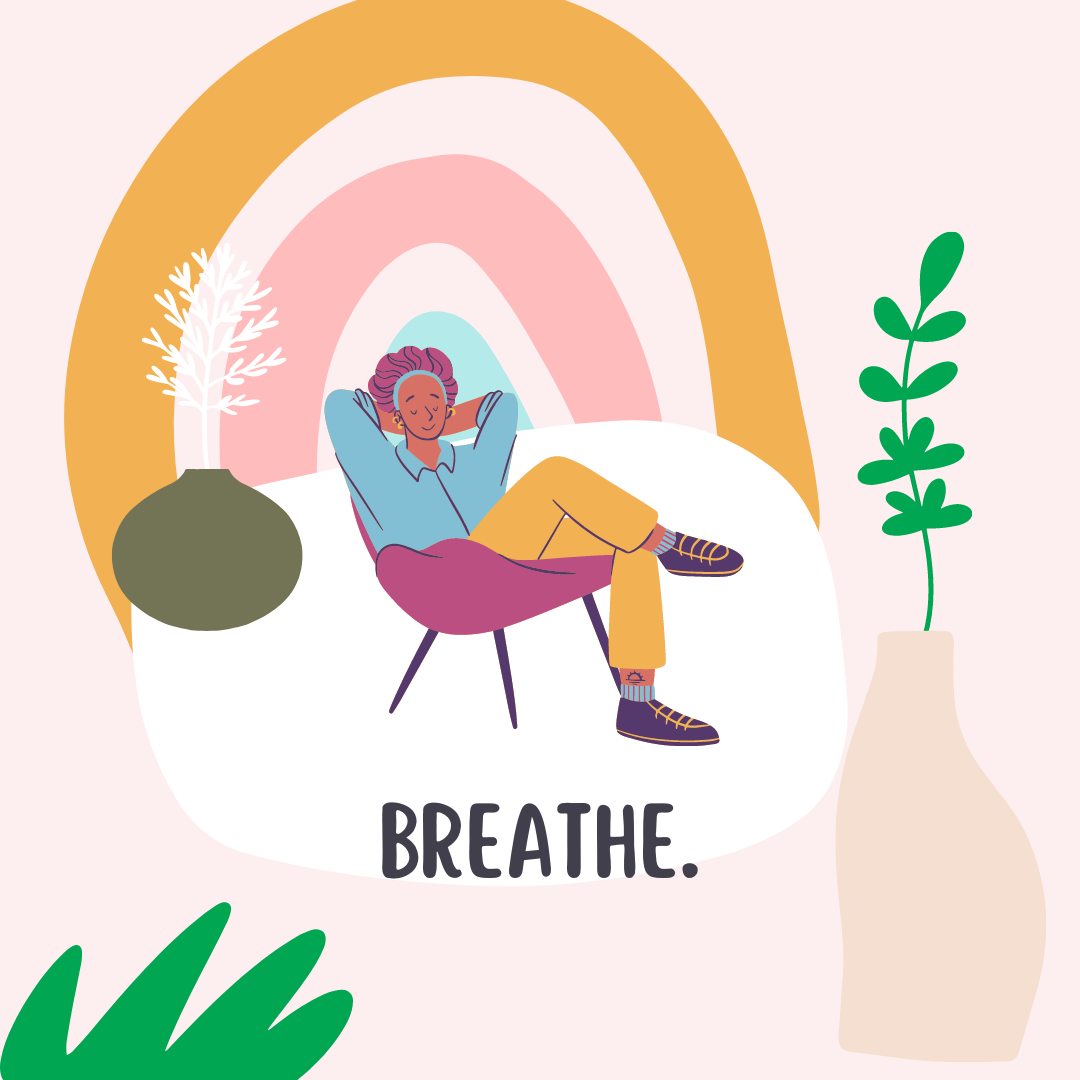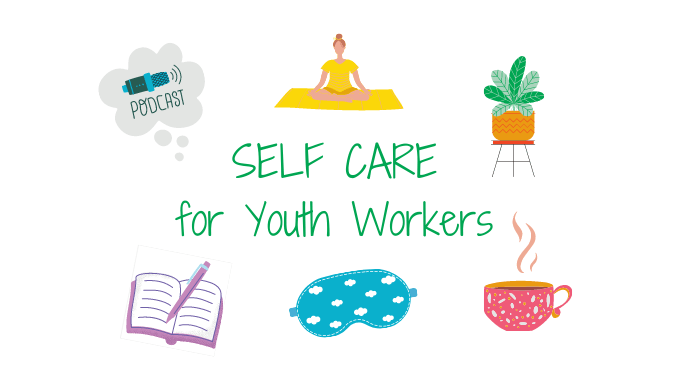Blog


One way we care for our team is by offering access to the PsycHealth Wellbeing App, a self-guided resource designed to promote mental well-being. This tool provides our staff with evidence-based strategies they can use anytime, anywhere, ensuring they have support tailored to their unique challenges.
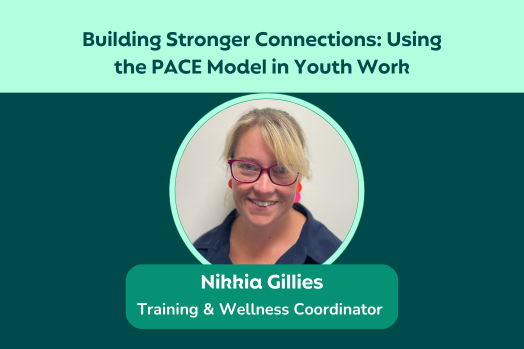
What is PACE? PACE is more than just a framework; it’s a way of thinking, feeling, and interacting. It helps young people feel safe, understood, and supported. By integrating playfulness, acceptance, curiosity, and empathy into our interactions, we can build stronger, more meaningful connections that encourage trust and emotional growth. Playfulness: Keeping Things Light Laughter and joy play a critical role in building relationships. Approaching situations with a playful attitude —using lighthearted tones, storytelling, or humor—can diffuse tension and make difficult conversations feel safer. It’s not about making light of serious issues, but rather creating an environment where young people feel comfortable expressing themselves without fear of judgment. Example: A young person refuses to participate in an activity. Instead of pushing, a playful approach might be, “Alright, but I bet you can’t beat me at rock-paper-scissors first!” This simple moment of fun can shift the energy and open the door for engagement. Acceptance: Meeting Them Where They Are Acceptance means acknowledging a young person’s thoughts, feelings, and experiences without judgment. It doesn’t mean condoning harmful behaviours, but rather validating their emotions so they feel heard and understood. Example: If a young person is angry because of a house rule, rather than dismissing their feelings, you could say, “I can see that you’re really frustrated about this rule. It’s okay to feel that way. Let’s talk about why it’s in place and how we can work through it together.” Curiosity: Understanding the 'Why' Instead of reacting with frustration when a young person behaves in a challenging way, approach the situation with curiosity. This means genuinely seeking to understand why they’re acting a certain way, without assumption or blame. Example: If a young person lashes out, instead of saying, “Why would you do that?” in an accusatory tone, a curious response could be, “I wonder what’s making you feel this way right now?” This encourages reflection and fosters open dialogue. Empathy: Walking Alongside Them Empathy is about being present and feeling with the young person. It’s letting them know that they’re not alone in their struggles and that their emotions matter. Example: When a young person is upset, rather than just saying, “You’ll be fine,” try, “I can see that you’re really upset. That must be really hard for you. I’m here to help you through it.” PACE in Practice Incorporating PACE into youth work takes practice. It requires slowing down, tuning in, and being mindful of your own emotions. You won’t always get it right, and that’s okay. What matters is the effort to create a safe, supportive space for young people to grow and heal. At Edmen, we encourage all our youth workers to adopt the PACE approach. By doing so, we’re not just providing care—we’re fostering trust, connection, and positive change in the lives of young people. When PACE Doesn't Work It’s important to note that when a young person is in fight, flight, or freeze mode, the PACE model won’t be effective in that moment. When they are in a heightened state of stress, they are no longer thinking rationally—they are trying to protect themselves. In these situations, it’s crucial to focus on de-escalation techniques to help them feel safe again before attempting to re-engage with PACE. This might include giving them space, using grounding techniques, or simply being a calm and reassuring presence until they are ready to reconnect. Interested in learning more about PACE? For more information, visit Dr Hughes' website - DDP Network
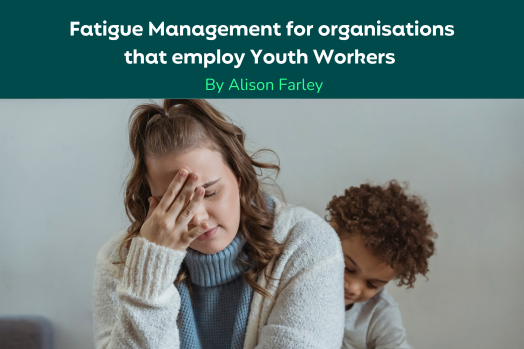
In the bustling world of community services, youth workers play a pivotal role. They are the heroes who guide, support, and inspire young individuals through their most formative years. However, the high demands and emotionally charged nature of their work can lead to fatigue, a condition often underestimated in its capacity to undermine both the wellbeing of workers and the quality of care provided to the youth. Recognising the significance of fatigue management is not just beneficial; it's a necessity for community services organisations and community staffing providers. This article delves into why managing fatigue is crucial, the responsibilities of organisations, and effective strategies for safeguarding youth workers against the detrimental effects of burnout.
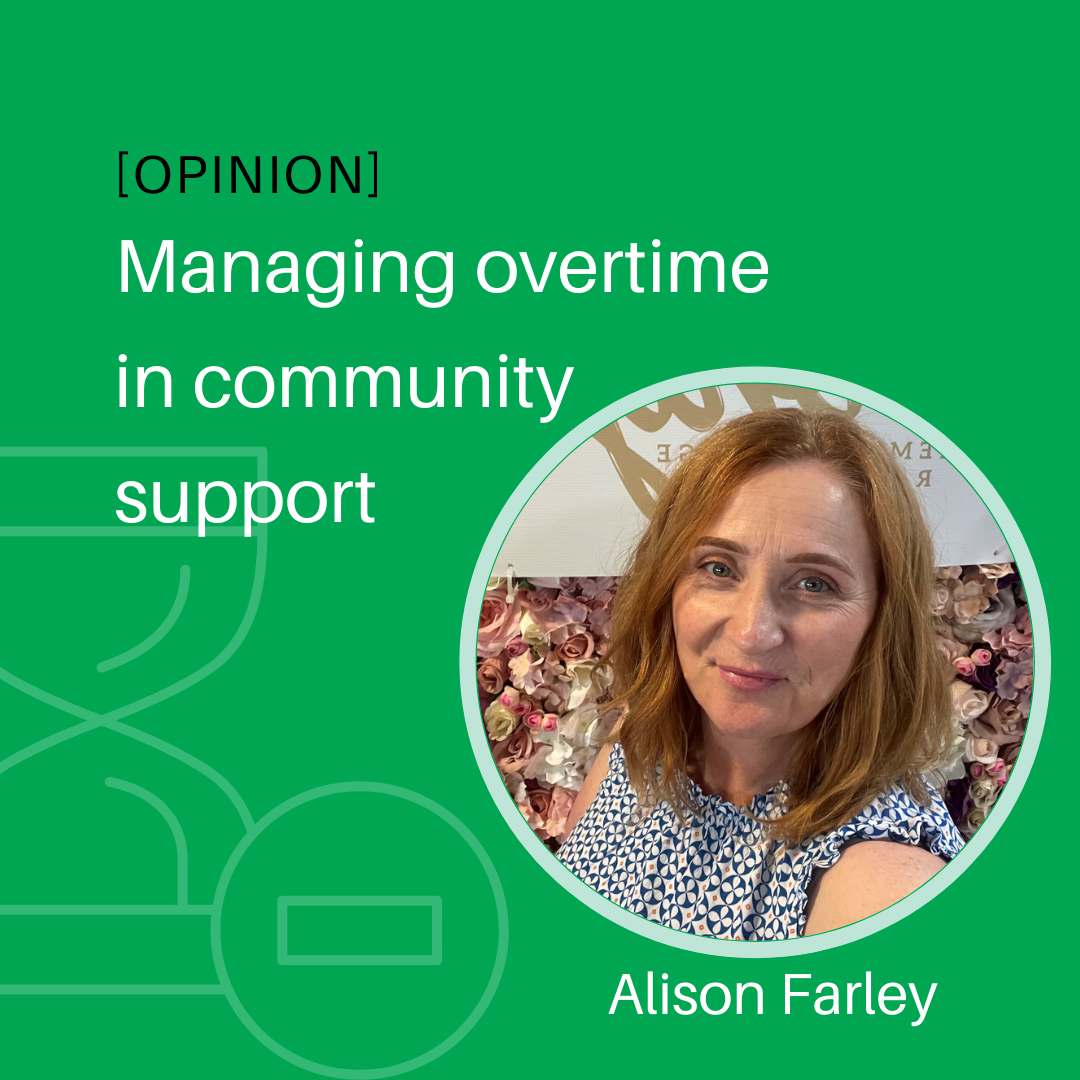
In the world of community service organisations, the challenge of balancing operational costs with uncompromised service delivery is more pronounced than ever. Amidst the backdrop of a rising cost of living, organizations are on a quest to find sustainable ways to cut down expenses without sacrificing the quality of support provided to those in need. One strategic approach to achieving this balance involves the meticulous management of overtime, particularly when rostering community support workers. Alison Farley, National Manager of Client Service and Delivery, sheds light on how a disciplined approach to overtime can serve as a linchpin in operational efficiency and service excellence. Overtime: A Last Resort, Not a First Option At the heart of sustainable operations is the principle of treating overtime as a measure of last resort. This philosophy is not just about cost-saving; it's fundamentally about safeguarding the welfare of community support workers and, by extension, the quality of service they provide. Overtime, when overused, can lead to worker fatigue, which poses risks not only to the employees themselves but also to the organisation and those it serves. The Edmen Approach: Striking the Right Balance Edmen Community Staffing Solutions exemplifies how a strategic approach to overtime can yield significant benefits. By prioritising this as a last resort, Edmen not only facilitates financial savings for community service providers but also champions the well-being of workers. The approach is two-fold: Firstly, implementing a clear and stringent approval process for overtime ensures that it is used judiciously and only in times of absolute necessity. This fosters a culture of accountability and emphasises the critical nature of planning and resource allocation. Secondly, the power of data cannot be overstated. Edmen's commitment to transparency and control is exemplified through comprehensive reporting and the provision of real-time dashboards for their clients. Surprisingly, regular reporting on overtime is not a universal practice, which can obscure visibility and hamper effective management. By making overtime data accessible and digestible, Edmen empowers its clients with the insights needed to make informed decisions and adjustments. The Edmen Advantage: Expertise and Scale What sets Edmen apart is not just their approach to managing overtime but their deep-seated expertise in the community services sector. This, combined with their extensive pool of support workers and an ongoing recruitment strategy, places Edmen in a unique position to offer scalable solutions tailored to the specific needs of community service organisations. Their exceptional service delivery model ensures that client partners and workers alike receive the support and resources they need to thrive, even in the face of operational and financial challenges. A Blueprint for Sustainable Service Delivery As community service organisations navigate the complexities of operating in a cost-conscious environment, the management of overtime emerges as a critical lever for ensuring both financial sustainability and the well-being of support workers. Alison Farley's insights underscore the importance of a disciplined, data-driven approach to overtime, highlighting how strategic rostering can pave the way for more efficient and effective service delivery. Through a combination of expertise, accountability, and innovative use of technology, Edmen showcases how organisations can maintain high standards of support while also adhering to stringent operational budgets. In doing so, they offer a blueprint for community service organisations looking to achieve a delicate balance between cost efficiency and uncompromised care. In essence, the journey towards operational efficiency and exceptional service delivery is multifaceted. It demands a commitment to strategic planning, a culture of accountability, and an unwavering focus on the well-being of both workers and those they support. As community service organisations look to the future, embracing these principles will be paramount in their quest to deliver meaningful support in the most sustainable way possible. Looking for workforce solutions or ways to make your rostering more efficient in your community service organisation? Get in touch and let us know about your workforce challenges.

Embarking on a journey as a youth worker or disability support worker while simultaneously pursuing studies is no small feat. The unique challenges and rewards that come with such roles require a delicate balance between education and practical experience. In this blog post, we'll explore practical tips and offer encouragement to help students successfully navigate this balancing act, making the most of their roles and education. Effective Time Management One of the key skills to master when juggling work and studies is effective time management. Create a realistic schedule that allocates dedicated time for both work and study commitments. Utilise tools like calendars, planners, or productivity apps to stay organized and ensure deadlines are met. Communication with Edmen Service Coordinator Your Edmen Service Coordinator is there to support you on your journey. Regular communication is crucial – keep them informed about your study commitments and work availability. This will help them tailor your work schedule to accommodate your academic responsibilities, fostering a collaborative and supportive environment. Maximising Support and Supervision Sessions (for Youth Workers) Engage actively in support and supervision sessions provided by Edmen. These sessions offer valuable insights, guidance, and a platform to discuss any challenges you may be facing. Share your goals and concerns to receive personalized advice and mentorship, helping you grow both professionally and academically. Leveraging Edmen’s Free Counselling EAP Services As a student juggling work and studies, it's normal to experience stress and pressure. Edmen offers access to Employee Assistance Program (EAP) services, including free counselling sessions. Don't hesitate to reach out when needed; these resources are designed to support your mental well-being, providing a confidential space to discuss any challenges you may be facing. Self-Care Matters Balancing work and studies can be demanding, so prioritize self-care. Allocate time for activities that bring you joy and relaxation. Whether it's exercising, reading, or spending time with loved ones, taking care of your well-being is essential to maintain a healthy work-study-life balance. Set Realistic Goals Establish achievable short-term and long-term goals. Break them down into manageable tasks and celebrate your accomplishments along the way. This approach will keep you motivated and focused, providing a sense of direction during busy times. Collaborate and Network Connect with fellow students, colleagues, and professionals in the field. Sharing experiences, insights, and tips can be mutually beneficial. Attend networking events or join online communities to expand your support system and gain valuable perspectives. Optimising Work-Life Balance with Edmen's Active App Edmen's Active app streamlines managing your work-life balance. Use it to proactively update your availability, especially during intense study periods or holidays, when your availability may change. By blocking out or updating your schedule in advance, you help your Service Coordinator schedule shifts more efficiently. Utilise University Support Services Remember, your university or educational institution is invested in your success. If you find yourself struggling with the demands of study and work, don't hesitate to reach out for help. Universities and training organisations often offer a range of support services, including study planning, advice, and feedback. Additionally, many institutions provide dedicated well-being services to support students during challenging times. Check with your organisation to explore the available resources and make the most of the support offered to ensure a well-rounded and successful academic journey. Balancing studies and a career in youth or disability support can be challenging, but with effective time management, open communication, and a focus on self-care, it's entirely possible. Utilise the support available through Edmen and your university or training provider, make the most of supervision sessions, and don't hesitate to access the counselling services provided. Remember, this journey is a learning experience, and each step forward is a step toward both personal and professional growth. Embrace the challenge, stay positive, and enjoy the rewarding journey of making a difference in the lives of others.

